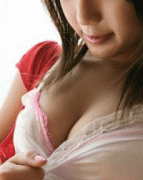 In early 1902, Einstein and Mileva Marić had a daughter they named Lieserl in their correspondence, who was born in Novi Sad where Marić's parents lived. Her full name is not known, and her fate is uncertain after 1903.
In early 1902, Einstein and Mileva Marić had a daughter they named Lieserl in their correspondence, who was born in Novi Sad where Marić's parents lived. Her full name is not known, and her fate is uncertain after 1903.
Einstein and Marić married in January 1903. In May 1904, the couple's first son, Hans Albert Einstein, was born in Bern, Switzerland. Their second son, Eduard, was born in Zurich in July 1910. In 1914, Einstein moved to Berlin, while his wife remained in Zurich with their sons. Marić and Einstein divorced on 14 February 1919, having lived apart for five years.
Einstein married Elsa Löwenthal (née Einstein) on 2 June 1919, after having had a relationship with her since 1912. She was his first cousin maternally and his second cousin paternally. In 1933, they emigrated permanently to the United States. In 1935, Elsa Einstein was diagnosed with heart and kidney problems and died in December 1936.
Patent office
Attached stone dwelling with drapery visible in the windows. It is over a first story restaurant.
Einstein's home in Bern
After graduating, Einstein spent almost two frustrating years searching for a teaching post, but a former classmate's father helped him secure a job in Bern, at the Federal Office for Intellectual Property, the patent office, as an assistant examiner. He evaluated patent applications for electromagnetic devices. In 1903, Einstein's position at the Swiss Patent Office became permanent, although he was passed over for promotion until he "fully mastered machine technology".
Much of his work at the patent office related to questions about transmission of electric signals and electrical-mechanical synchronization of time, two technical problems that show up conspicuously in the thought experiments that eventually led Einstein to his radical conclusions about the nature of light and the fundamental connection between space and time.
With a few friends he met in Bern, Einstein started a small discussion group, self-mockingly named "The Olympia Academy", which met regularly to discuss science and philosophy. Their readings included the works of Henri Poincaré, Ernst Mach, and David Hume, which influenced his scientific and philosophical outlook.

No comments:
Post a Comment